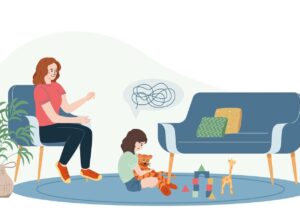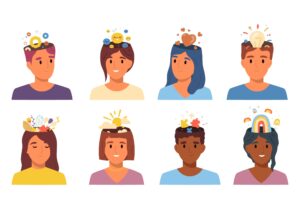Validation: How To Do That ?
This article has been researched and written by Dalea Alawar. AI has not been used in producing this article.
This article will discuss what validation means, what it does not mean, and how to effectively use it as a tool to communicate effectively. Validation, in the context of communication, means to acknowledge what a person is feeling, thinking, or experiencing so that the person can feel understood and heard. The experience of feeling understood and heard can lead to powerful effects. It helps regulate emotion, decrease defensiveness, build trust and safety, and it encourages cooperation. So, to validate someone is extremely beneficial to both people. But it’s not easy! Let’s talk about how to do validate effectively. In my therapy practice, I frequently find that the most common reasons that someone does not want to validate their partner/friend/family member, are because they think that validating them would mean they agree with what the other person is doing, thinking, or feeling, or because they fear that validating them would make the other person feel even worse.
However, this is not what validation is. Below is an example of what validation would look like:
Person 1: I’m really upset that you forgot my birthday. It’s as if you don’t care about me
Person 2: You’re right, I did forget your birthday. And I can completely understand why that would be upsetting, especially if you believe that it means I don’t care. I really am sorry that I forgot about it. It’s not because I don’t care, it’s because I have been so overwhelmed with work and family that days are passing by so quickly, and I’m actually forgetting many important things. Let me try to make it up to you by taking you out to dinner.
Take note that Person 2 did not agree that forgetting Person 1’s birthday means they don’t care. They just acknowledged Person 1’s experience.
Here is another example:
Person 1: I am so angry that my sister sent me this text! I don’t want to speak to her again!
Person 2: I would be pretty angry if I got a text like that. I can understand why you wouldn’t want to speak to her again. I think I would have a thought like that too. I think it might be best to wait until you are not so angry anymore to decide if you should stop talking to her, because that is a very big decision.
Take note that Person 1 did not encourage Person 2 to stay angry. Acknowledging that it makes sense for someone to feel a certain way is not the same as telling them they should continue to feel that way and that this feeling should dictate their behavior.
Overall, validation does not mean that you are telling someone they are “ right”. It means that you are putting the effort to put yourself in their situation and can see why they may be feeling a certain way.
Validation reflects empathy and helps build a connection with others, because we all want to feel understood and heard.
Rethinking Neurodiversity and Autism
I want to explore autism beyond outdated concepts of deficits and limitations. In the newsletter …
Did You Know – Crows Can Be Quite Machiavelic
Crows have become quite the residents in Dubai’s landscape. Although first spotted around …
How to Talk to Your Child About Body Safety – Without Creating Fear
Body safety talks don’t have to be and shouldn’t be scary. When these conversations are calm …
ADHD in Girls vs. Boys: Why Symptoms Often Look Different
When people think of ADHD, they often picture a young boy bouncing off the walls, constantly moving, talking out of turn, or …
How Psychoeducational Assessments Help Shape Better Learning Plans in School
No two children are the same. Every child brings a unique mix of strengths, challenges, and ways of …
Can Relationship Counseling Work for Toxic Relationships?
Relationships can be complicated, emotional, and at times, painful. While every couple experiences ups and downs, some relationships …
10 Signs You May Have Anxiety
Anxiety is a normal and natural human response to stress, danger, or uncertainty. However, when anxiety becomes excessive, it can …
Child Sleepwalking and Talking: What You Need to Know
Childhood is a time of rapid development, filled with new experiences—and sometimes, surprising nighttime behaviors.
Questions a Child Psychologist Might Ask
When preparing for your child’s first appointment with a psychologist, it’s natural to feel curious—or even a little anxious—about what …
55 Love Questions for Couples to Deepen Your Relationship
In any relationship, communication is key. Whether you’re just starting out or have been together for years, asking meaningful











